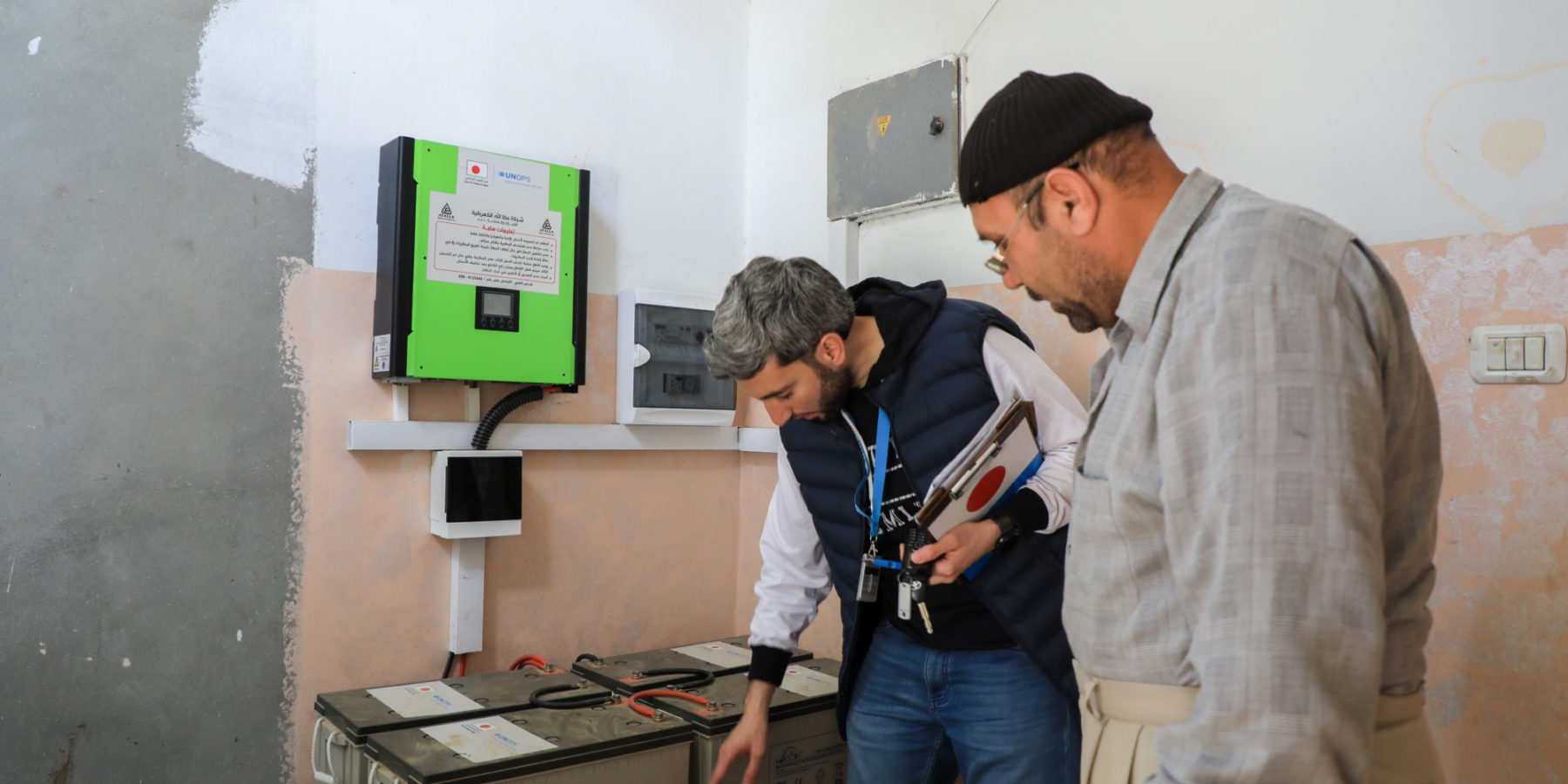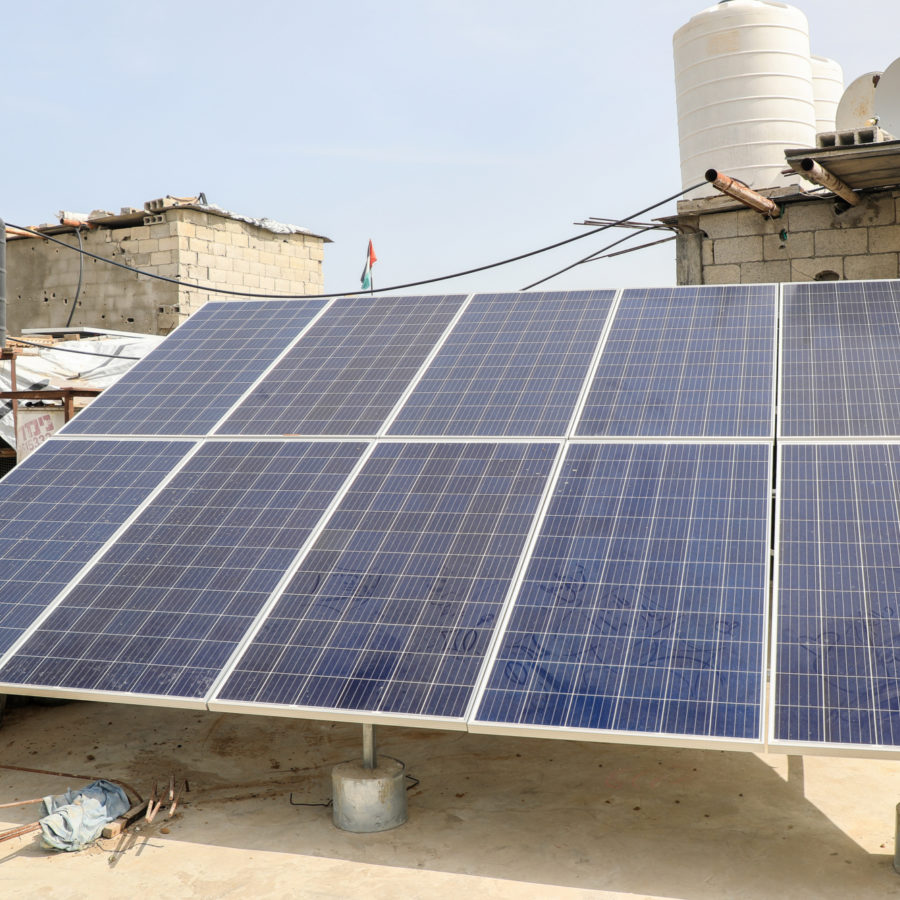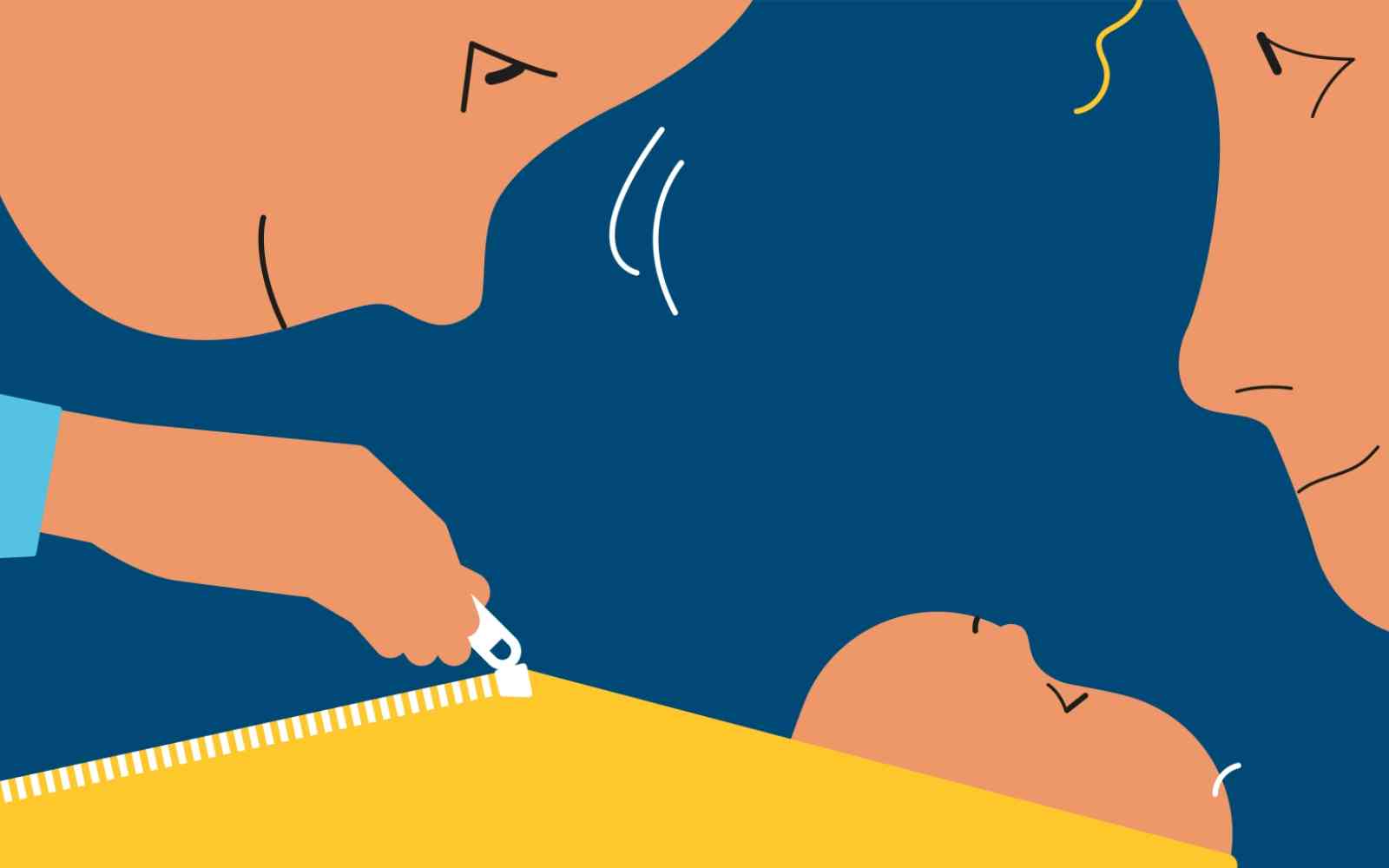The United Nations Office for Project Services (UNOPS)

Providing reliable and sustainable energy to the people of Gaza
Since 2006, Gaza has suffered from chronic electricity shortages. This further exacerbates already difficult living conditions for the majority of its nearly two million residents, who live on just a few hours of electricity every day.
The constant energy shortages disrupt the daily lives of residents, inhibiting access to basic and essential services – including healthcare, water and sanitation – as well as economic opportunities. A lack of electricity further poses risks to the health and safety of Palestinians living in the area, who often resort to using less sustainable and potentially dangerous forms of electricity and light, such as batteries and candles.
Khitam Hassouna Mohammed Saleem, a resident of Al-Shejaiya, Gaza, and her husband, Abu Ayman, lost their home in the 2014 Israel-Gaza conflict. Despite rebuilding their house, frequent power cuts have caused major challenges for their family. “I’m an ill woman,” said Khitam. “I suffer from asthma and I need a nebulizer device. My husband is also very sick. He has diabetes and [liver and spleen difficulties].”
While 500 megawatts of energy is needed on average to meet the daily needs of residents, only 85 megawatts is available – a significant deficit.

“We had to use candles for lighting for more than three years.”
– Jamal Jouma, resident of Jabalia, Gaza
In an effort to respond to the ongoing crisis, UNOPS – with funding from the government of Japan – supported the Ministry of Public Works and Housing and the Palestinian Energy and Natural Resources Authority (PENRA) to provide renewable energy solutions for households across Gaza.
In support of PENRA’s aims to achieve 10 per cent of domestic electricity generation to come from renewable energy by 2020 – UNOPS installed hybrid solar systems, with a peak capacity of around 3 kilowatts (kW), on the rooftops of households.
Using a transparent process that assessed vulnerabilities, beneficiaries were selected from the most vulnerable affected populations, with a focus on women. Female-headed households and widows with lower means and ability to get through crises were given priority, as well as elderly-headed households and people living with disabilities.
Khitam and her husband were one of nearly 190 families who have benefitted from improved access to reliable and sustainable electricity sources across eight municipalities.
“Before this, I struggled to breathe at night, said Khitam. “My children would have to take me to the hospital for treatment. Now my treatment is possible at home. I can run the nebulizer device myself, since I have electricity. I can breathe and be relieved.”


The hybrid solar systems help provide a sustainable source of power, that is more reliable and cost-effective for households than energy produced by traditional methods.
“For Gaza, renewable energy is not merely an environmentally friendly solution, but also helps to save lives and livelihoods. We are proud to support these efforts, and help Palestinians who have lived amid conflict for years to rebuild their lives,” said Tokumitsu Kobayashi, UNOPS Director in Jerusalem.
“Despite the enormously difficult political and economic situation facing the region, it is important not to lose hope and to work together for a better future,” said the Japanese Ambassador for Palestinian Affairs and Representative of Japan to Palestine, H.E. Ambassador Takeshi Okubo.
Following the successful completion of the project, UNOPS and the government of Japan have since extended their partnership to provide renewable energy for the European Gaza Hospital, by installing a 715 kW hybrid solar system. This initiative will help provide critical and essential healthcare services for approximately 100,000 Palestinian patients living in Gaza.













